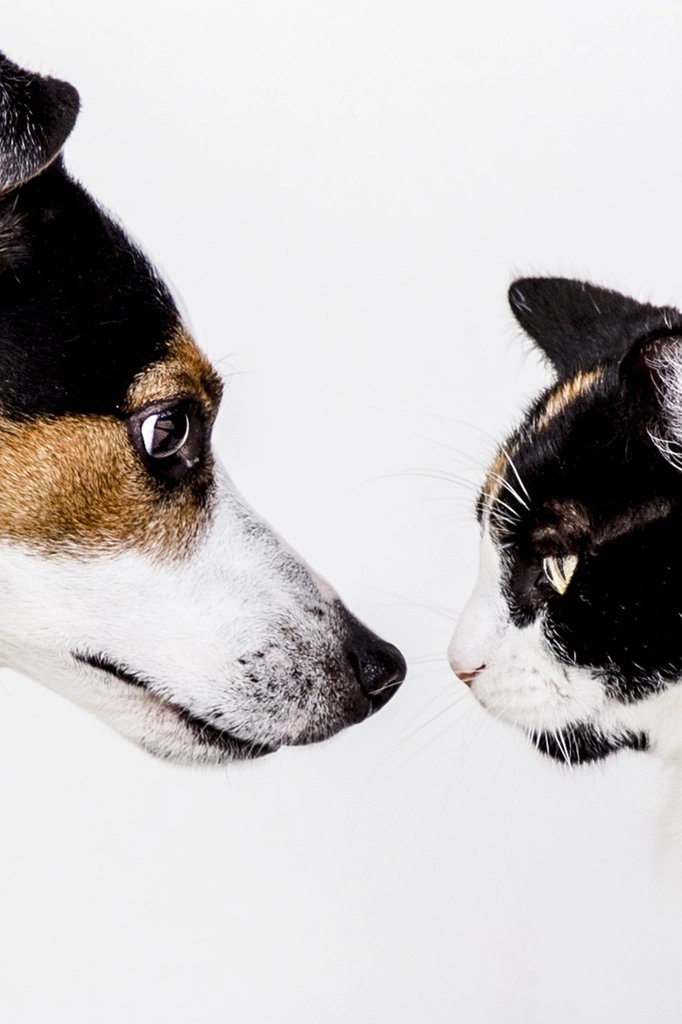Imagine coming home and finding your usually lively cat slumped quietly by the window, or your dog sighing heavily in their empty bed. Losing a companion—be it human or animal—can shake the very core of a pet’s world. But do cats and dogs mourn in the same way? If you’ve ever wondered whether your cat’s silent stares or your dog’s whimpers are signs of a broken heart, you’re not alone. Let’s dive into the mysterious, touching, and sometimes surprising world of feline and canine grief, and explore how our furry friends process loss in their own unique ways.
The Nature of Animal Grief

Grief isn’t just a human emotion. Many animals, including cats and dogs, can experience a deep sense of loss when someone close to them passes away. This emotional reaction is rooted in their social bonds and attachments, which can be just as strong as ours. What’s truly fascinating is that, while both cats and dogs grieve, the way they express it can be as different as night and day. Some pets may act withdrawn or stop eating, while others might become clingy or vocal. It’s not just about sadness—it’s about adapting to a world that suddenly feels incomplete.
Understanding Feline Bonds

People often say cats are aloof, but anyone who’s lived with a cat knows how attached they can be. Cats form subtle but powerful bonds with their owners and fellow pets. These ties aren’t always loud or obvious; they might curl up next to their companion quietly or groom them gently. When that connection is broken, cats can feel a profound sense of absence. This bond is the foundation of their grief, shaping how they cope and express their emotions.
How Dogs Attach to Their Families

Dogs, on the other hand, wear their hearts on their sleeves. They’ve evolved as pack animals, thriving on close relationships with humans and other animals. Their loyalty and devotion are legendary—just think of those wagging tails and excited greetings. When a member of their “pack” is gone, dogs often show their heartbreak openly. They may search for their missing friend, whine, or refuse to leave their favorite spot. The strength of their attachment makes their grieving process both visible and poignant.
Physical Signs of Grief in Cats

Cats can be masters at hiding their feelings, but grief has a way of slipping through the cracks. You might notice your cat eating less, sleeping more, or spending hours in the same spot where their companion used to rest. Some cats become restless, pacing the house as if searching for answers. Others might become more clingy or, conversely, withdraw completely. These changes can be subtle, but they’re important signals that your cat is feeling the loss.
Physical Signs of Grief in Dogs

Dogs are more likely to show physical signs of grief that tug at your heartstrings. They might stop eating, lose interest in toys, or sleep excessively. Some dogs may howl or whimper, especially at times when they’d normally interact with their lost companion. You may catch them searching the house or waiting by the door, hoping for a familiar face to return. These behaviors are a dog’s way of processing the confusion and sadness that comes with loss.
Emotional Responses in Cats

A grieving cat might display a range of emotions, from quiet sadness to irritability. Some cats become more vocal, meowing as if calling out for their absent friend. Others may act out, scratching furniture or refusing to use the litter box. These emotional changes aren’t just random—they’re a way for your cat to communicate distress. It’s a reminder that even the most independent felines have deep feelings and need time to heal.
Emotional Responses in Dogs

Dogs react emotionally to loss, sometimes with a rawness that’s hard to miss. They might appear anxious, following their owners around more than usual. Some dogs lose interest in their favorite activities, while others become overly attached or even fearful. You might notice changes in their body language: lowered ears, tail tucked, or a general look of sadness in their eyes. For many dog lovers, it’s a heartbreaking reminder of just how deeply dogs can feel.
Changes in Social Behavior

The loss of a companion can shake up the social dynamics in a household. Cats may become more solitary, avoiding other pets or people altogether. Others might seek extra attention, craving reassurance from their human family. Dogs, meanwhile, might try to fill the void by becoming more protective or clingy. Sometimes, the remaining pets will form new bonds, but this process can take time and patience from everyone involved.
Differences in Coping Mechanisms

Cats and dogs cope with grief in ways that reflect their personalities. Cats often withdraw, preferring to process their emotions privately. They may hide under beds, ignore their favorite toys, or sleep in unusual places. Dogs, conversely, often seek comfort from their humans. They may nuzzle you more, ask for extra walks, or want constant companionship. Understanding these differences is key to supporting your grieving pet.
Seeking Comfort: Cats vs. Dogs

When faced with loss, cats and dogs look for comfort in different ways. Some cats might find solace in routine, sticking closely to their usual habits or favorite hiding spots. Others may seek your lap more often, purring quietly as if to self-soothe. Dogs are generally more direct—they’ll lean on you, sleep at your feet, or paw for attention. Both need reassurance, but they ask for it in their own unique languages.
The Role of Memory in Grief

Memory plays a surprising role in how pets grieve. Cats have excellent long-term memories, especially when it comes to people or animals they loved. They may remember shared routines or spots where they used to cuddle. Dogs, too, can recall their lost companions, whether through familiar scents or favorite games. These memories can trigger waves of sadness or confusion, making the grieving process unpredictable and deeply personal.
Impact of Human Emotions on Pets

Our pets are incredibly attuned to our emotions. If you’re grieving, chances are your cat or dog senses your sadness. Cats may mirror your mood, becoming quieter or more affectionate when you’re down. Dogs, meanwhile, often try to comfort you—nudging your hand, resting their head on your lap, or simply sitting close by. This emotional connection can make grief a shared experience, binding you and your pet even closer.
How Environment Influences Grief

The environment plays a big part in how pets process loss. Changes in household routines, missing smells, or the absence of a familiar voice can all trigger grief. Cats might become anxious if their territory feels different, while dogs may become unsettled by the sudden silence. Sometimes, introducing new toys, routines, or even gentle music can help ease the transition and provide comfort.
The Importance of Routine

Both cats and dogs find security in routine, especially during times of loss. Keeping feeding times, walks, and play sessions consistent can provide a sense of normalcy. For cats, simple rituals like brushing or quiet lap time can be soothing. Dogs may benefit from regular exercise and extra positive attention. These small acts can make a big difference, offering a stable anchor in a world that suddenly feels uncertain.
Helping Your Cat Through Grief

Supporting a grieving cat requires patience and sensitivity. Offer extra comfort without forcing interactions—let your cat come to you when they’re ready. Provide cozy hiding spots and keep their environment calm and predictable. Some cats may respond to gentle play or new toys, while others need time to adjust. A little extra love, and maybe some treats, can go a long way in helping your cat heal.
Helping Your Dog Through Grief

Dogs often need more hands-on support when they’re grieving. Spend more time with your dog, offering cuddles, walks, and playtime. Encourage them to eat and maintain their usual routines. If your dog seems especially anxious or depressed, consider short outings or new activities to lift their spirits. Remember, your comfort and presence are often the best medicine for a heartbroken pup.
When Grief Becomes a Concern

While most pets gradually recover from loss, sometimes grief can lead to serious issues. Watch for signs like refusing to eat for days, extreme withdrawal, or changes in bathroom habits. If your cat or dog seems stuck in their sadness, don’t hesitate to consult your veterinarian. There may be underlying health problems, or your pet might need extra support to move forward. Grief is a journey, and sometimes, even our bravest companions need a little help along the way.

Growing up traveling and experiencing new cultures and wonders, I have had a passion for nature, adventuring, photography, and videography. I am currently working towards a BSc in Biodiversity and Ecology at Stellenbosch University, and I hope to specialise in Marine Sciences one day.
Please send any feedback to Feedback@animalsaroundtheglobe.com






